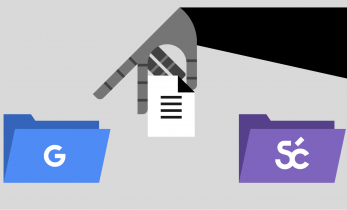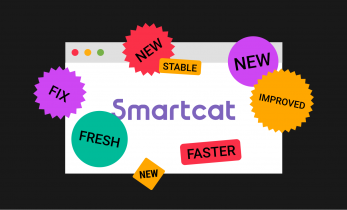Greater than 3 minutes, my friend!
Translation and Blockchain Technology How cryptocurrencies like Bitcoin will also revolutionise the translation business
The Basics
Many of us have heard of Bitcoin and the blockchain, but few of us may actually understand this technology.
For the uninitiated among us, a cryptocurrency (such as Bitcoin) is a digital medium of exchange that is based on two technologies:
- Cryptography, or highly complex code, that keeps the cryptocurrency secure from counterfeiting or hacking.
- The blockchain, which is essentially a distributed database that maintains a public ledger comprising tamperproof blocks.
Cryptocurrencies allow the near-instantaneous exchange of value.
The blockchain also ensures security as any maliciously tampered transactions or blocks are invalidated, as they no longer match the information held on the ledger.
So long as crypto assets are stored on secure wallets (rather than exchange platforms) and you have an uncompromised key, your assets are safe – even if your PC is destroyed. The ledger maintains your records.
But why use cryptocurrency when we already have digital sovereign money?
Unlike conventional fiat currencies (such as dollars, euros or pounds), cryptocurrencies can be transferred at instantaneous or high speeds across the Internet.
To this day, it is quicker to take a flight from London to Mumbai and handover cash personally than it is to send a bank transfer across continents. It is crazy how slow banks are in adopting faster technologies.
Send US dollars to your business partner around the world and it will take a few days.
Send a Bitcoin and it will arrive anywhere around the world in an hour.
Send an Ethereum token and this is reduced to minutes.
Send a Ripple token and the transaction is completed in seconds.
In an age of negative and zero interest rates, an asset of increasing value also has an intrinsic financial value.
Applications in Translation
As you may have guessed, Bitcoin isn’t the only cryptocurrency out there. In fact, there are hundreds of them.
With names like Potcoin, Pepe Cash and Trollcoin, some of them are more serious than others…
Bitcoin, itself, offers the translation business a range of exciting opportunities:
- Fast international payment solutions (particularly useful for translators and clients based on different continents)
- A new payment option that is widely used online
- Miniscule transaction costs compared to international bank transfers and intermediary services like Western Union
However, there are a number of other cryptocurrencies that offer additional, even more interesting possibilities.
A cryptocurrency doesn’t just have to be a medium of exchange, it can also offer its own functionality.
Bitcoin has seen its value increase steadily from $1 in early 2011 to almost $2900 today.
Ethereum offers a decentralised platform for smart contracts.
It allows companies, banks, organisations and individuals not only to engage in the Internet of Value, but also benefit from excellent data and transactional security.
A large number of business-oriented apps are also being developed on the Ethereum technology. These range from censorship-proof microblogging sites and crowdfunding, to small loans in developing countries, identity protection and even gaming.
The technology behind Ethereum is particularly exciting as it is experiencing widespread adoption in business and even administrations – the Russian central bank is already launched a pilot project using the Ethereum blockchain.
Ethereum offers all the functional benefits of Bitcoin, plus faster transactions and the applications currently in development.
It is no wonder the price for an Ethereum token has doubled to $350 in just a few weeks.
Siacoin is a relative newcomer, being an ‘alt-coin’, but also promises useful applications.
Siacoin uses blockchain technology to offer its users incredibly low-cost means of highly secure data storage.
Unlike conventional cloud storage providers, data on Sia is completely inaccessible to third parties. Files are encrypted and stored on a distributed decentralised network, and they are also much less vulnerable to data loss.
Users of the Sia service pay with Siacoin, which can also be openly traded on exchanges.
Data security is a huge concern for translators and clients, so it is exciting to see a superior, low-cost solution that uses the power of the blockchain.
There are so many more cryptocurrencies that can also be useful in our business, but this article is intended as an introduction and prompt for further contemplation.
Do you – fellow translators, prospective clients and interested visitors – already use this technology in your business? Do you see any benefits in terms of cost savings, transaction speed and functionality?
I, for one, will soon be allowing my clients to pay for my translation services in either Ethereum or Bitcoin (with a small discount compared to fiat prices). This development is only in its infancy and many new opportunities are sure to arise!
Disclaimer: I invest in cryptocurrencies.




